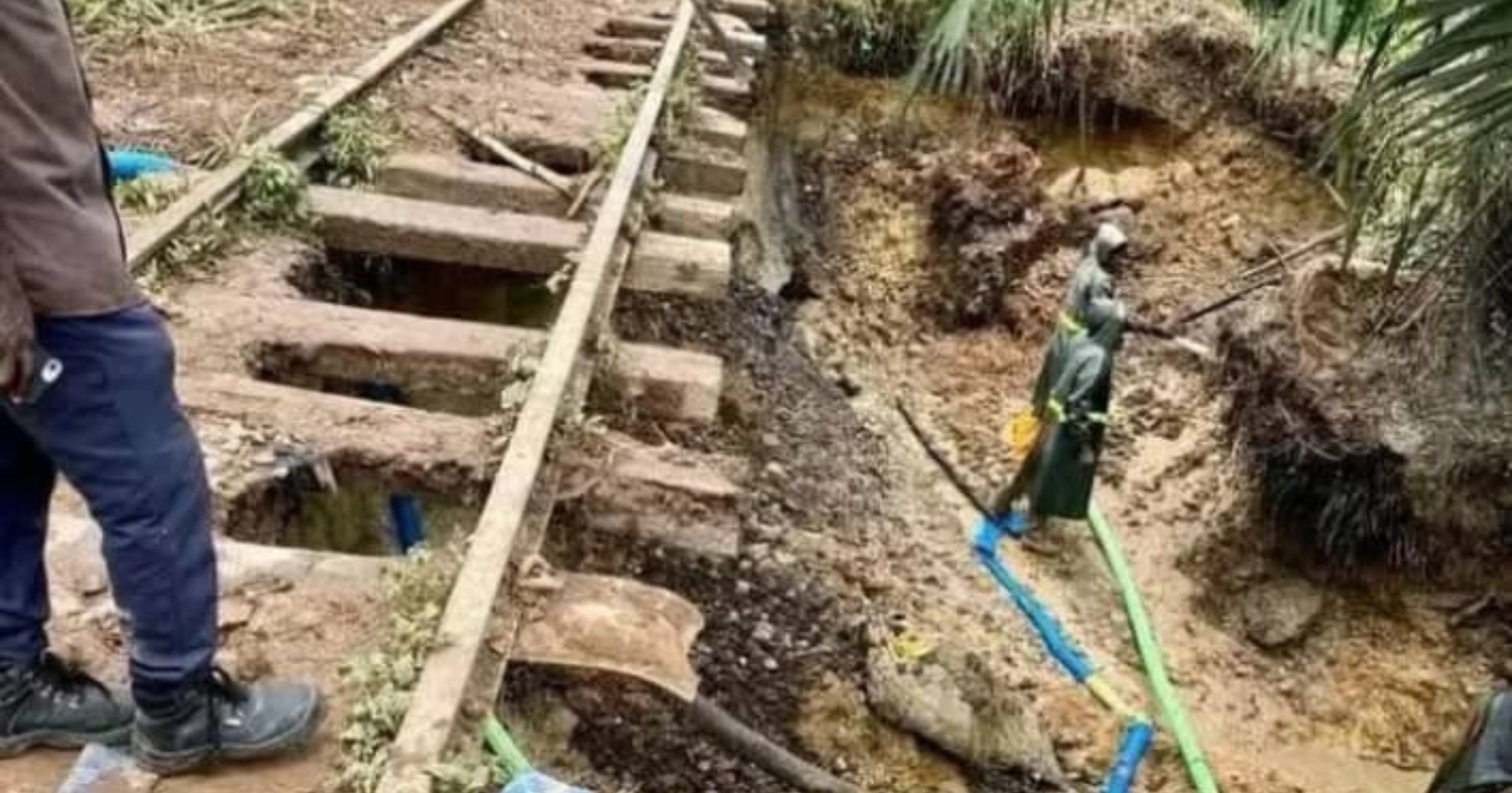
In Bonsawere, illegal gold mining, popularly known as galamsey, has escalated beyond environmental degradation to become a death trap, as miners have dug under the railway lines, threatening the safety of the community. For years, the failure of authorities to apprehend these illegal miners has raised serious suspicions and questions about enforcement and complicity. Galamsey, wrongly viewed by some as a normal business, is wreaking havoc on Ghana’s natural resources and community health.
Galamsey’s destructive impact on Ghana’s rivers is severe. The illegal mining practices result in water bodies being contaminated through the usage of harmful chemicals like mercury and cyanide, and by turning clear rivers into turbid streams thick with sediment. This pollution makes water unsafe for human consumption and kills aquatic life, undermining the ecosystem services that rivers provide. Rivers such as the Pra, Ankobra, and Birim are some of the most affected, jeopardising access to clean water for communities downstream.
Beyond water pollution, galamsey has accelerated deforestation as miners clear large areas of forest and farmland, increasing soil erosion and threatening biodiversity. The clearing of vegetation also harms the catchment areas that feed rivers, reducing their natural ability to filter and hold water, which amplifies flooding and drought cycles.
The effects on food security are equally dire. Farmlands, including cocoa plantations, which are vital to Ghana’s economy, are extensively destroyed to make way for mining. This puts the livelihoods of farmers and the broader food supply chain at risk.
Health problems in mining communities are on the rise, with waterborne diseases like typhoid linked to polluted water sources. Chronic conditions such as kidney failure and birth defects have also been associated with mercury and chemical exposure from galamsey activities. Socially, the illegal mining boom has fostered conflicts, child labour, and exploitation of vulnerable populations, making it a broader human rights issue.
The growing menace of galamsey in Bonsawere and across Ghana necessitates urgent, uncompromising action from authorities and political will to protect lives, livelihoods, and the environment from further irreversible damage.





